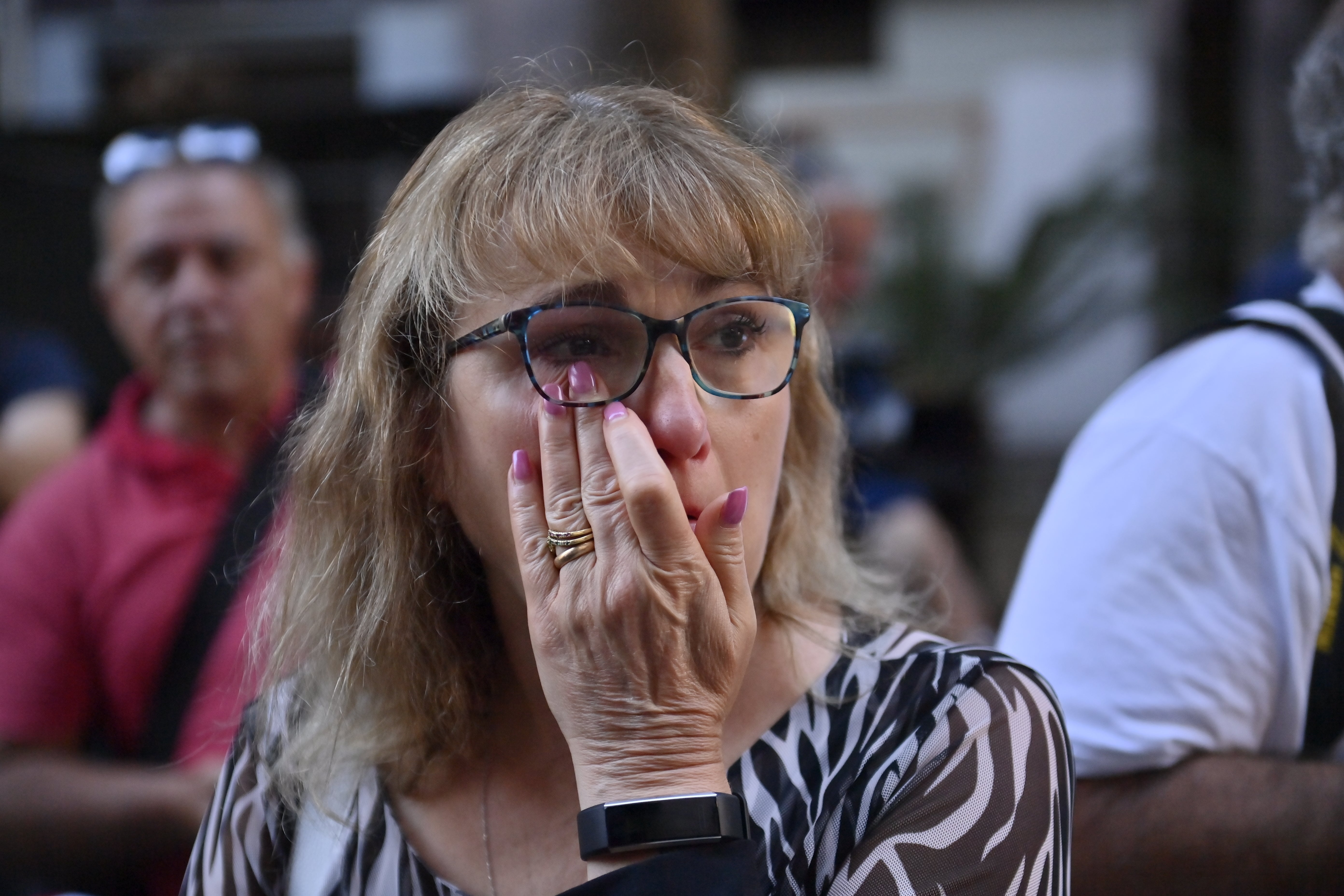‘Today, justice and truth are closer’: Trial begins in Italy for deadly Genoa bridge collapse
In August 2018, 43 people plunged to their death after a bridge connecting northern Italy to France collapsed. On Thursday, writes David Harding, a long-awaited trial began and the families of victims want answers


Almost four years to the day, Italy has begun the process of trying to get to the truth of one of the most shocking incidents in its recent history.
On 14 August 2018, 43 people died after the collapse of Genoa’s Morandi Bridge. On Thursday, 59 people went trial on for the disaster.
The bridge linked the city and northern Italy to France. But when a 200m-long section (656 feet) came down during a storm, it plunged dozens of vehicles 45m (150 feet) to the riverbed below.
The scenes were horrific as scores of people, driving along on an apparently normal day, plunged to their deaths.
The tragedy shone a spotlight on many things within Italian society; on poor city management, on those who knew but did not say that the bridge was vulnerable to collapse, and on a fight for justice for the families of the victims.
“A different Italy can come out of this trial,” Egle Possetti, head of the committee for victims of the disaster, said before Thursday’s trial began.
Giovanni Toti, the governor of Liguria, the region where Genoa is located, said the start of the trial was important for the region but also relatives of the 43 victims.
“Starting today, justice and truth are closer and we hope will arrive quickly,” Mr Toti wrote on Facebook.
“It’s the only way to rebuild the trust between citizens and the state that collapsed on that godforsaken 14 August.”
Defendants included former executives and experts of the company that manages many of Italy’s bridges and roads, as well as former officials of the Italian ministry of infrastructure and transport.

Prosecutors have alleged the defendants knew the bridge, which was built in the 1960s, was at risk of collapsing and that corners were cut on maintenance to save money.
The bridge’s designer had recommended regular upkeep to remove rust, especially due to the corrosive effect of moist air from the nearby Ligurian Sea, and maintenance to counter the effect of pollution on concrete.
In April, a Genoa judge approved plea bargain requests by both the roads company, Autostrade per l’Italia, and the Spea engineering company, to pay €29m (£25m) to the Italian government in exchange for avoiding a trial.
The lawyer for the former Autostrade chief executive, Giovanni Castellucci, who is among the defendants, said the trial would show that the bridge collapsed not as a result of maintenance negligence but due to an original “construction defect”.
“This is why 43 people died in a terrifying and absurd way,” defending lawyer Giovanni Paolo Accinni said.
A replacement bridge, designed by renowned architect Renzo Piano, who is from Genoa, features 43 lamps in memory of the people who perished. That was inaugurated in 2020.
Relatives of the deceased leave flowers by the bridge on the 14th day of every month.
After the collapse, the Italian government forged a deal in which the Benetton family, owners of the global fashion company, agreed to sell its ownership stake in Autostrade.

The trial began though with a false start.
After an hour of procedural motions, Judge Paolo Lepri adjourned proceedings and set a new hearing for 14 September in a trial that is expected to take more than a year to reach any verdicts.
Join our commenting forum
Join thought-provoking conversations, follow other Independent readers and see their replies
Comments
Bookmark popover
Removed from bookmarks